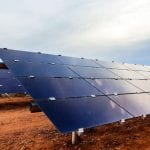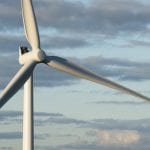Around The Web
The mighty mulga grows deep and lives long
Energy Insiders Podcast: Mining industry turns to wind, solar, batteries and hydrogen
 The mining industry is going green - at least in its electricity supply. A special “live” podcast from the Energy and Mines conference in Perth.
The mining industry is going green - at least in its electricity supply. A special “live” podcast from the Energy and Mines conference in Perth.
The post Energy Insiders Podcast: Mining industry turns to wind, solar, batteries and hydrogen appeared first on RenewEconomy.
Teachers want climate crisis training, poll shows
Survey says teachers feel ill-equipped to educate pupils, as school strikes continue
A growing number of teachers want their pupils to learn more about the climate crisis and are calling for environmental training so they can prepare children for a rapidly changing world, according to a poll.
The findings from YouGov research commissioned by Oxfam come before the latest round of school climate strikes on Friday, in which it is expected that hundreds of thousands of young people will walk out of classrooms around the world.
Continue reading...Queensland company joins global effort to improve wind turbine installation
 Global marine contractor Van Oord and heavy lifting and transport specialist Mammoet partner with Queensland's Verton Australia to develop safer method for installing wind turbine blades.
Global marine contractor Van Oord and heavy lifting and transport specialist Mammoet partner with Queensland's Verton Australia to develop safer method for installing wind turbine blades.
The post Queensland company joins global effort to improve wind turbine installation appeared first on RenewEconomy.
EnergyAustralia hit by power price interventions, coal troubles
 After a bumper year of profits in 2018, EnergyAustralia has taken a hit from state and federal retail power price re-regulation, suffering a write-down of up to $A1.3 billion.
After a bumper year of profits in 2018, EnergyAustralia has taken a hit from state and federal retail power price re-regulation, suffering a write-down of up to $A1.3 billion.
The post EnergyAustralia hit by power price interventions, coal troubles appeared first on RenewEconomy.
Miners see 50% renewables as standard, but are aiming for 100%
 Miners turn corner on renewables, with minimum 50% wind and solar considered the norm, and looking to use cheap renewables to build industries rather than just export ore.
Miners turn corner on renewables, with minimum 50% wind and solar considered the norm, and looking to use cheap renewables to build industries rather than just export ore.
The post Miners see 50% renewables as standard, but are aiming for 100% appeared first on RenewEconomy.
Forget Brexit and gas prices, “silent catalysts” to drive EUAs higher -analysts
Berrybank wind farm begins construction with turbines made locally in old car factory
 The 180MW Berrybank wind farm will use turbines constructed in a former car factory in Geelong.
The 180MW Berrybank wind farm will use turbines constructed in a former car factory in Geelong.
The post Berrybank wind farm begins construction with turbines made locally in old car factory appeared first on RenewEconomy.
Rare baby gorilla born at Taronga zoo
Taronga Conservation Society Australia has announced the birth of a Western Lowland gorilla. The female, yet to be named, was born on Thursday 6 June to Frala, an experienced mother, and was sired by Kibali
• ‘Gorilla selfie’: DRC park ranger explains photo that went viral
Continue reading...BHP energy tender could deliver “game changing” shift to renewables
 BHP puts its Chile and Australian electricity contracts out to tender, and expects renewables to feature strongly in "game-changing" shift.
BHP puts its Chile and Australian electricity contracts out to tender, and expects renewables to feature strongly in "game-changing" shift.
The post BHP energy tender could deliver “game changing” shift to renewables appeared first on RenewEconomy.
'Clean electricity' will dominate power supply
CP Daily: Thursday June 20, 2019
'I want to be a guinea pig to help others'
California lawmakers urge adoption of Tropical Forest Standard
NA Markets: California carbon allowances see steep drop, RGGI flattens on New Jersey finalisation
New York legislature passes net-zero emissions legislation with offsetting
EU leaders fail to agree on 2050 net zero emission goal
Pollutionwatch: how farming causes harm to rural air quality
Concern grow over ammonia particles from fertiliser and bioaerosol from intensive farms
We think of the countryside as being a place of fresh air. Each weekend thousands of us leave our cities to hike or cycle in rural areas or simply to enjoy time in nature. Increasing attention is being given, however, to air pollution from farming. Ammonia from fertiliser and slurry mixes with air pollution from cities, traffic and industry to add to the particle pollution that plagues many parts of the world. It is estimated that halving ammonia from farming could avoid about 52,000 premature deaths from air pollution across Europe each year and 3,000 in the UK.
Increasing attention is also being paid to bioaerosol from intensive farming. In animal houses these are tiny particles and dust from the animals themselves, their food, bedding and waste. They can also include fungi, bacteria and pollen. A recent review by Imperial College and Public Health England found evidence of respiratory problems in farm workers and raised concerns about exposure for people living close to intensive livestock farms, including some evidence of increased asthma in children. Bioaerosol concerns mean that composting facilities need to be at least 250 metres from UK homes and schools, but farms can be nearer and only require assessment if they are closer than 100 metres.
Continue reading...


